Behind the grit and grind of construction lies a silent crisis: men in the trades are dying at alarming rates.
Construction work is more than a job for many men. It’s an identity. It’s long days, hard physical labour, pride in getting the job done, and a sense of camaraderie with the crew. But behind the grit and grind lies a troubling reality: men in the trades face some of the highest rates of suicide and substance use in Canada.
A recent BC Coroner’s report found that 21 per cent of overdose deaths involved men working in construction. Suicide adds another layer of loss, with thousands of families every year left grieving fathers, sons, brothers, and friends.
In a powerful episode of the Don’t Change Much podcast, host Buzz Bishop sat down with four people who know this struggle firsthand:
- Trevor Botkin, closely working on The FORGE, a peer-support program for trades workers.
- Andrew Perez, interim executive director of the Canadian Association for Suicide Prevention (CASP).
- Mitch Orton and Rob Saloman, who each lost a family member in the trades to suicide.
Together, they explored why men in construction are at such high risk and what can be done to protect one another.
“I just wanted it all to stop.”
For Trevor Botkin, the trades were more than work. They became his entire identity. He was known as the guy who could take on the toughest jobs and deliver under pressure. But behind that reputation was a man drowning. He shares, “On March 6, 2019, I was done. The plan was to take my life. The intent wasn’t to die — it was to shut everything off.”
The constant grind, financial stress, steroids, and alcohol left him with no outlet. He was ashamed to admit how much he was struggling and convinced himself his kids would be better off without him.
“I had no outlet. No way of taking care of myself. No way of saying no. I didn’t know how to set boundaries.” — Trevor Botkin
Thankfully, Trevor survived. That experience now drives his work with The FORGE, which trains tradespeople with lived experience in mental health or recovery to support their peers. The idea is simple but powerful: men in the trades are more likely to trust and open up to someone who truly understands their world.
Families left behind
For Mitch Orton, losing his brother to suicide was devastating but not entirely surprising. He saw how the pressure built up over time. Mitch shared, “When you’re a teenager thrown in with 40-year-olds. It’s intimidating. Then you start your own business, and that pressure doubles or triples.”
Mitch noticed his brother trying to keep up with a lifestyle that didn’t add up: expensive trucks, clothes, and the pressure to live like the people whose million-dollar homes he was building. Add in long hours, substance use, and the expectation to “man up,” and the strain became overwhelming.
Now, Mitch speaks out so others might not end up in the same place.
“It really sucks that my brother’s gone, but I can see how the pressure builds to get you there. I wish I had more tools.” — Mitch Orton
Rob Saloman tells a similar story about his son, Nick, who ran a successful drywall business but felt crushing responsibility to his employees and family. Along with financial stress and relationship problems, Nick also used steroids, something Rob later realized contributed to his son’s emotional volatility.
“You just never think anyone could get to that point.” — Rob Saloman
For Rob, the hardest part is knowing his son reached out for help, but the health system didn’t connect the dots. His doctor knew he had suicidal thoughts, but his psychologist didn’t. That lack of communication proved fatal.
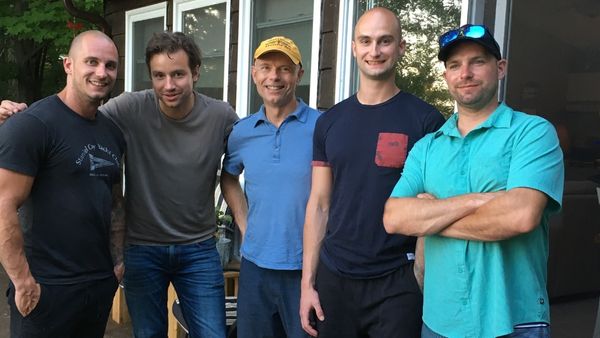
Rob Saloman (middle) with Nick (far left) and his other three sons.
Why the trades are so vulnerable
The stories from Trevor, Mitch, and Rob highlight a common thread: in the trades, your work is your life. It’s a lifestyle occupation, much like first responders. Your job becomes your identity, and with that comes pride, but also isolation.
There’s also the cultural piece. Men in construction are surrounded by toughness, banter, and sarcasm. Joking about life “burning down” or “drowning” is common, but rarely taken seriously.
As Trevor explained, “We’d defend each other in a bar fight without thinking twice. But will we stand up when a brother on the crew is drowning inside?”
Signs it’s more than stress
Everyone feels pressure at work, but when does stress become something more serious? Some warning signs the men noticed:
- Living beyond their means: Mitch noticed his brother trying to keep up with people “two, three tax brackets above” him: the lifted truck, expensive clothes, and lifestyle that didn’t add up.
- Substance use: Both Mitch and Rob described how alcohol, drugs, and steroids can start as a way to cope but quickly spiral out of control.
- Relationship struggles: Rob said his son’s on-again, off-again relationship added massive stress on top of business pressures.
- Behaviour changes: Trevor described feeling like he was “drowning” and had no outlet, even while keeping up appearances at work.
- Throwaway comments: As Trevor noted, it’s common to joke on a jobsite that “my life’s burning down.” The risk is when no one takes the time to ask if that joke is masking something real.
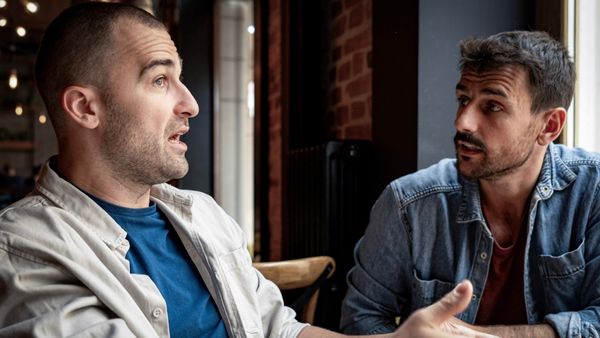
Ways to support a buddy who’s struggling
Talking about feelings isn’t a weakness. In fact, the men in this conversation stated the opposite: real strength lies in showing up for one another.
- Check in after the joke. Trevor suggested that if a buddy laughs about life falling apart, the most powerful response is: “If it ever stops being funny, I want to know.”
- Be the safe place. Trades workers often want to talk, but they need to know they’ll be heard without judgment.
- Share your own struggles. The whole idea behind The FORGE is that when men see themselves reflected in another person’s story, it opens the door to sharing.
- Encourage professional help. Andrew emphasized the need for larger systems, while Trevor highlighted programs like The FORGE. Together, their message was clear: support must go beyond “fix it yourself.”
- Stay connected. Mitch and Trevor reminded listeners that crews will have each other’s backs in a fight, but the challenge is extending that same loyalty to mental health. A quick text, call, or coffee can make all the difference.
A call for national action
From an advocacy standpoint, Andrew Perez stressed that this isn’t just about individuals, it’s about systems.
“Canada loses 4,500 people a year to suicide — 12 people every day.” — Andrew Perez
Unlike most G7 countries, Canada still lacks a fully funded national suicide prevention strategy. CASP has been calling for one since the 1990s, arguing that community-led, equity-focused solutions are needed for specific groups, including trades workers, Indigenous people, and young men.
Countries like Scotland and Finland saw suicide rates drop dramatically after investing in national strategies. Canada can do the same, but only if there’s political will.
Moving forward
The losses shared by Mitch and Rob are heartbreaking reminders of what’s at stake. But their willingness to speak out — alongside Trevor’s survival story and Andrew’s advocacy — also shows that change is possible.
It starts with conversations. It grows with peer support and safe spaces. And it becomes real when we redefine strength: not as carrying the weight alone, but as having each other’s backs.
Behind every hard hat is a story, and no one should have to write the ending alone.
If you need help
If you or someone you know is struggling, you are not alone. In Canada, call or text 988 for immediate support from the Suicide Crisis Helpline. For trades workers, peer support is available through The FORGE and other community organizations.

Not Feeling Like Yourself?
Tackle chronic stress, anxiety and depression with MindFit Toolkit. Access free mental health tools designed for men.

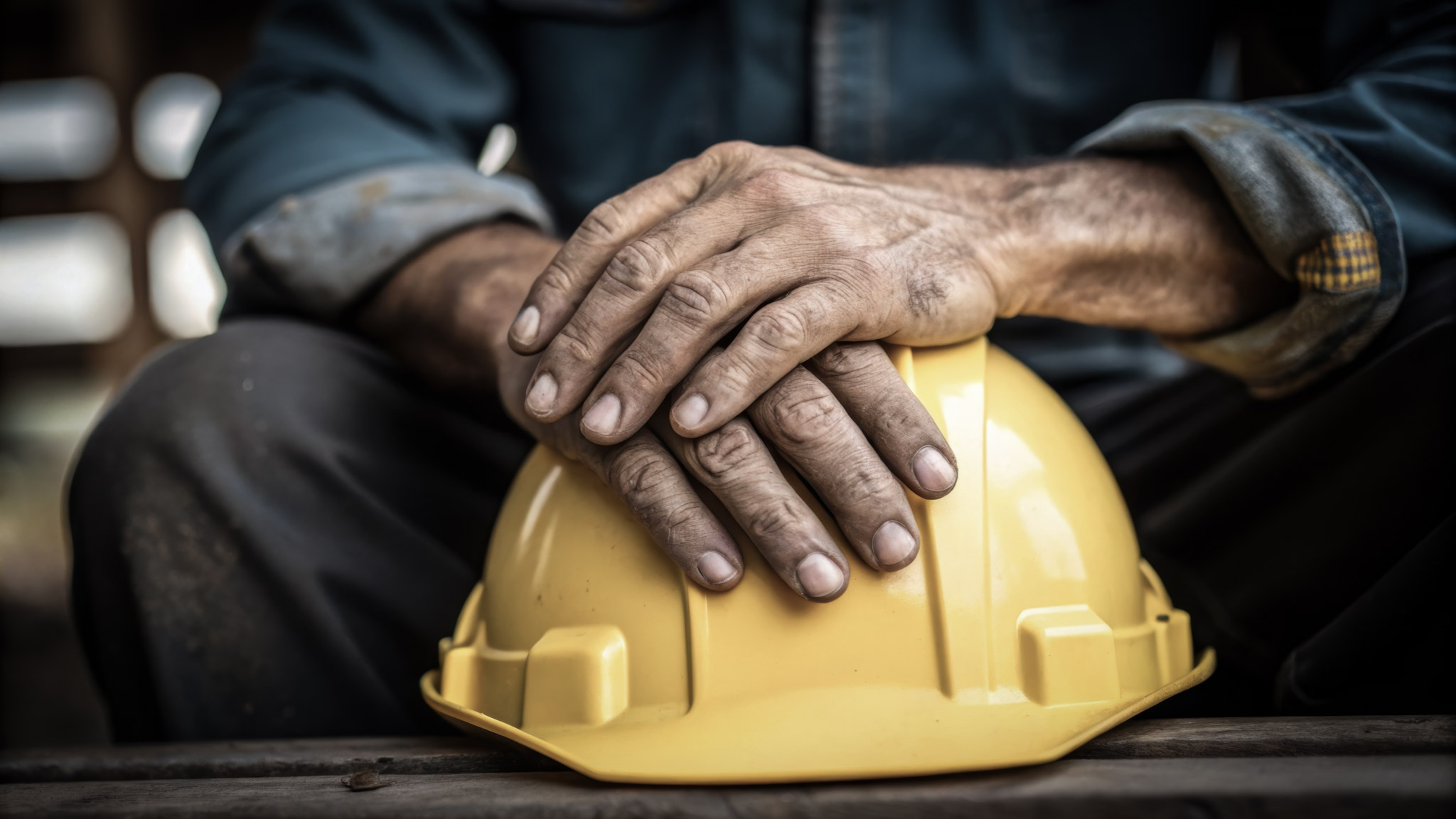

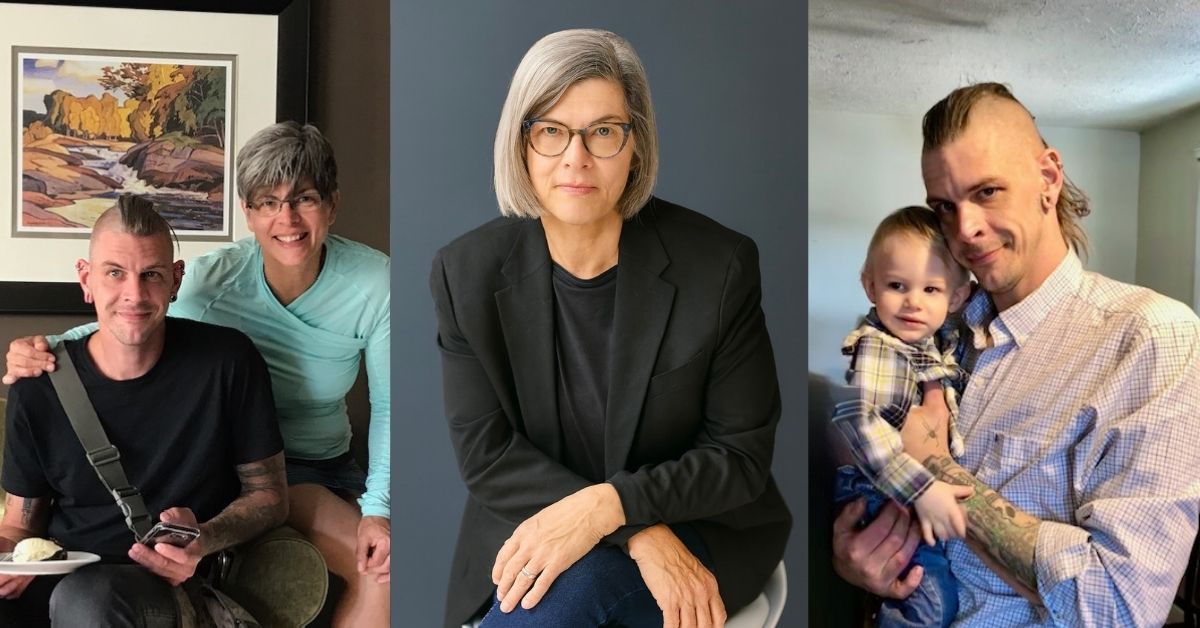
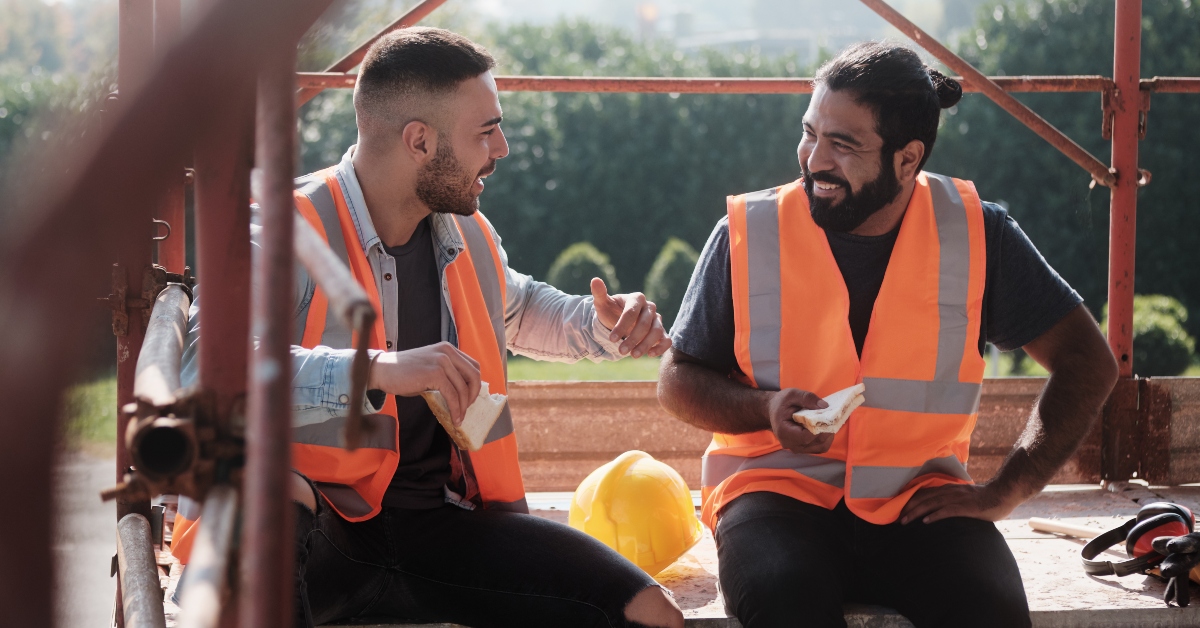

Let’s Talk!
Did you enjoy this article? Let us know in the comments.
0 Comments